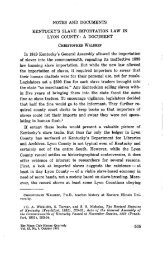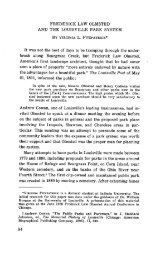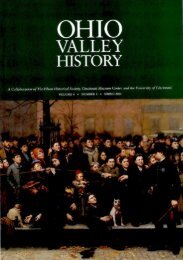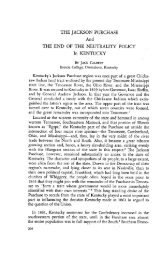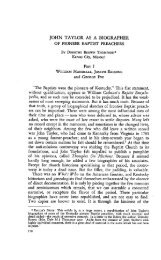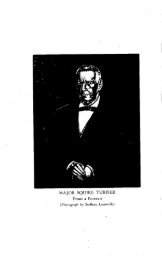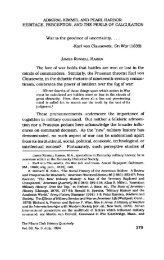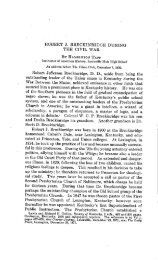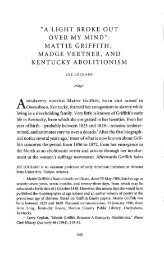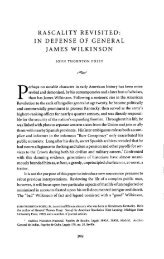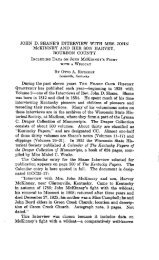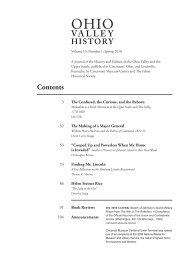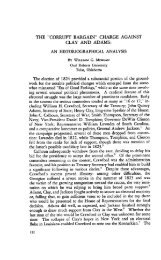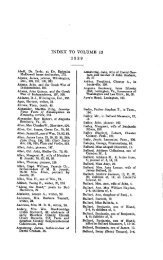JOHN M. HARLAN IN KENTUCKY, 1855-1877 THE STORY OF Hm ...
JOHN M. HARLAN IN KENTUCKY, 1855-1877 THE STORY OF Hm ...
JOHN M. HARLAN IN KENTUCKY, 1855-1877 THE STORY OF Hm ...
Create successful ePaper yourself
Turn your PDF publications into a flip-book with our unique Google optimized e-Paper software.
22 The Filson Club History Quarterly [Vol. 14man crusade against the new sect.,• Doubtless with plenty ofexaggeration one of his opponents writes in summarizing hisspeech at Paris: "He is for destroying the Mormons withoutlaw or form; thinks that Brigham Young ought to be hung by theFederal Government for having sixty-four wives."*, Nor wasthis to be the last expression of the religious note in Harlan'spolitical outlook.But it was the slavery issue and not the question of immigrantsor Mormons that occupied the spotlight in the 1859 campaignof John Harlan'for Congress. Arguing that he was unqualifiedlyin favor of positive national intervention in behalf ofslavery in the territories, Harlan attempted to demonstrate agreater support of the institution than could be offered by hisDemocratic opponent Simms,,* whom he tagged with .Douglasdoctrines of squatter sovereignty. "He charged Southern Democratictraders with having sold the rights of the Southern peopleto squatter sovereigns of the North to procure a union withDouglas Democrats.",, He persistently pressed upon his Democraticrival embarrassing questions such as, "If Douglas receivedthe Charleston nomination would you vote for him?",,Nor was he content to attack squatter sovereignty from theviewpoint alone of its immediate implications. He argued thatit was based upon the wider theory of majority despotism, upon"the mobocratic idea which levels destruction at all writtencontracts by which the weak are protected against the strong,that majorities can make and set aside constitutions at pleasure."-However, it is doubtful whether this deeper excoriationof the Douglas doctrine as a standing threat to "individuals orminorities in the enjoyment of private property, freedom of conscience,freedom of speech, freedom of the press, and the otherprivileges which are the birthright of American freemen'"' appealedas strongly to Kentuckians as the simple fact behind itall that Harlan was going the limit in his defense of slavery. AsI have suggested he also exploited the charge of DemocratioJl Frankfort Tri-Weekly Yeoman, July 23, 1859.Jl Lezlng•on Kentucky Statesman, July 20• 1859.l0 Early in the campaign a third candidate named Trabue, clinging to the OldKnow-Nothing platform, fought both Harlan and Simms, but when it became clearthat he could win only small support he resigned in favor of Simms. FrankfortTri-W¢ekty Yeoman, May 26, June 21, 1859.a• Frankfort Commonwealth, July 29, 1859.iJ Louisville Weekly Journal, June 3, 1859.u/b/d., February 23, 1859.*• Ibid.



